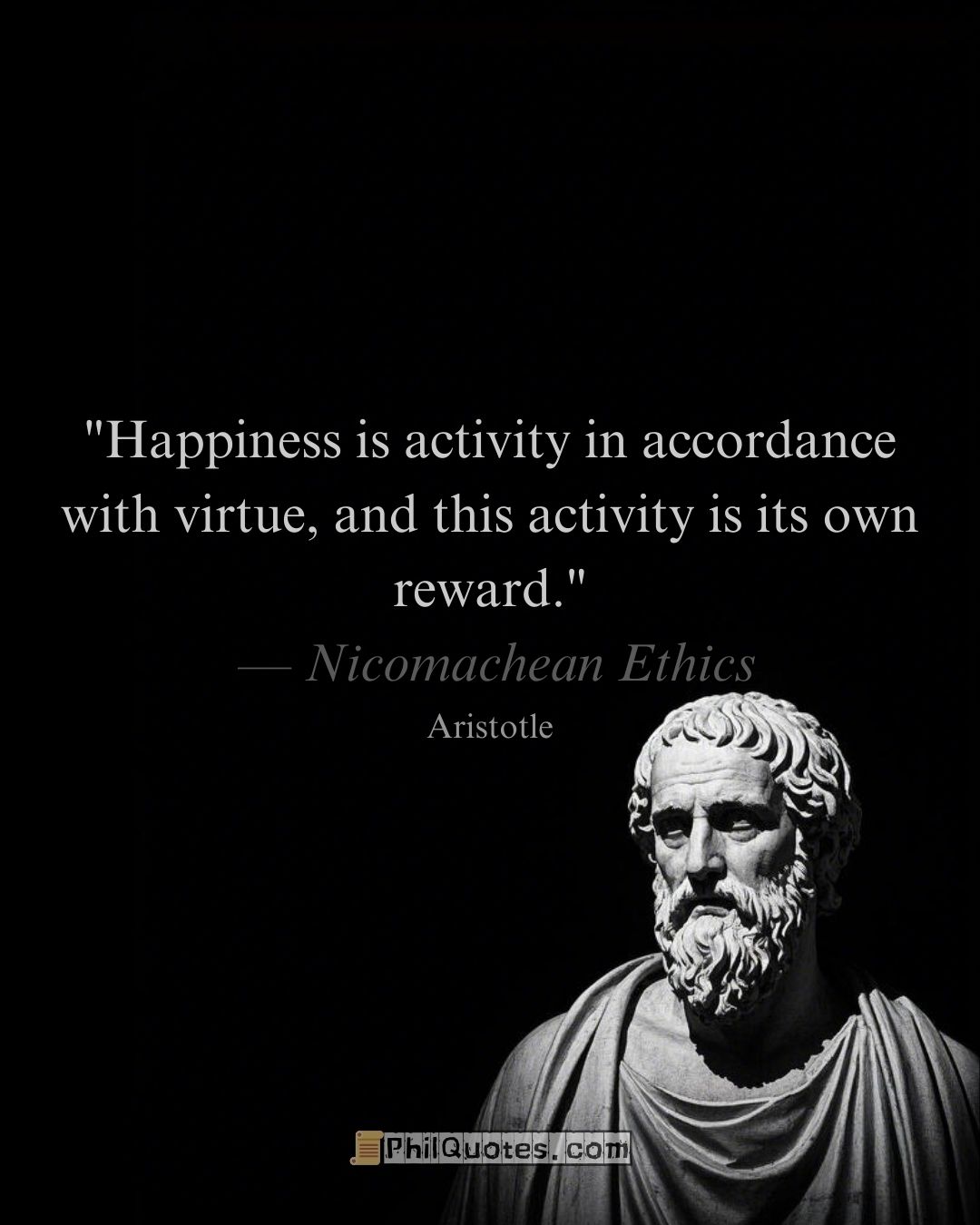
“Happiness is activity in accordance with virtue, and this activity is its own reward.”
— Aristotle, Nicomachean Ethics, Book II, Chapter 1
(Translated by W.D. Ross)
🔍 What It Means
True happiness comes from doing good things consistently, not just feeling good temporarily. Think of it like a basketball player practicing daily—the joy isn’t just in winning games, but in becoming a better version of yourself through effort.
💡 Real-Life Examples
- Study Group Leader
Help classmates with homework → build trust → feel proud of their progress → happiness = making others succeed. - Team Captain Mindset
Pass the ball to a struggling teammate → boost team unity → enjoy the win more → virtue = valuing “we” over “me”. - Community Garden Volunteer
Plant veggies every Saturday → watch the garden grow → get free produce → reward = seeing your impact.
🚀 How to Practice
- Daily “Good Deed” Alarm
Set a phone reminder: “3 PM: Do one kind thing (hold a door, share notes).” - Virtue Journal
Write every Friday: “Top 3 moments this week where doing right felt rewarding.” - Role Model Challenge
Pick someone you admire (teacher, coach) → copy one of their habits for a month.